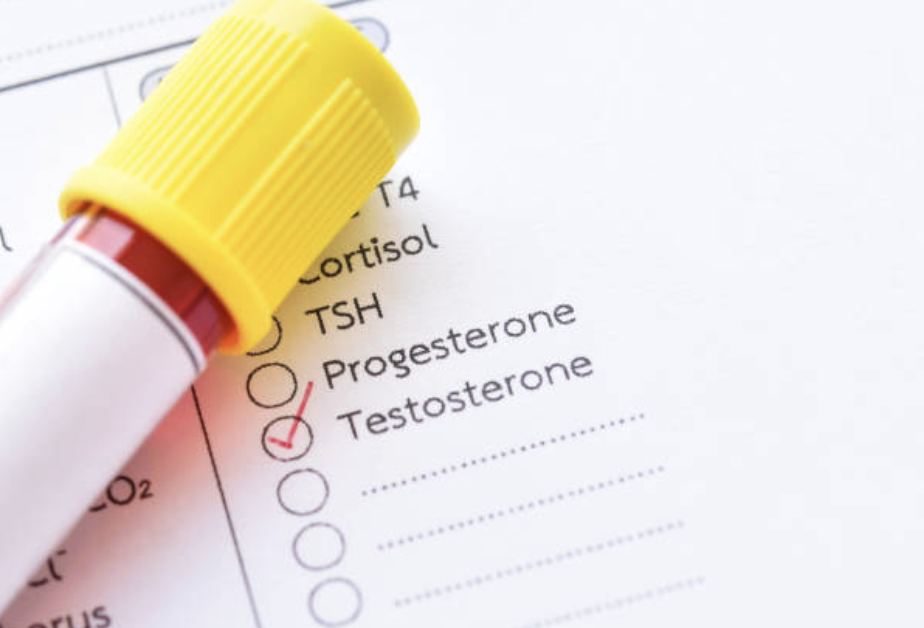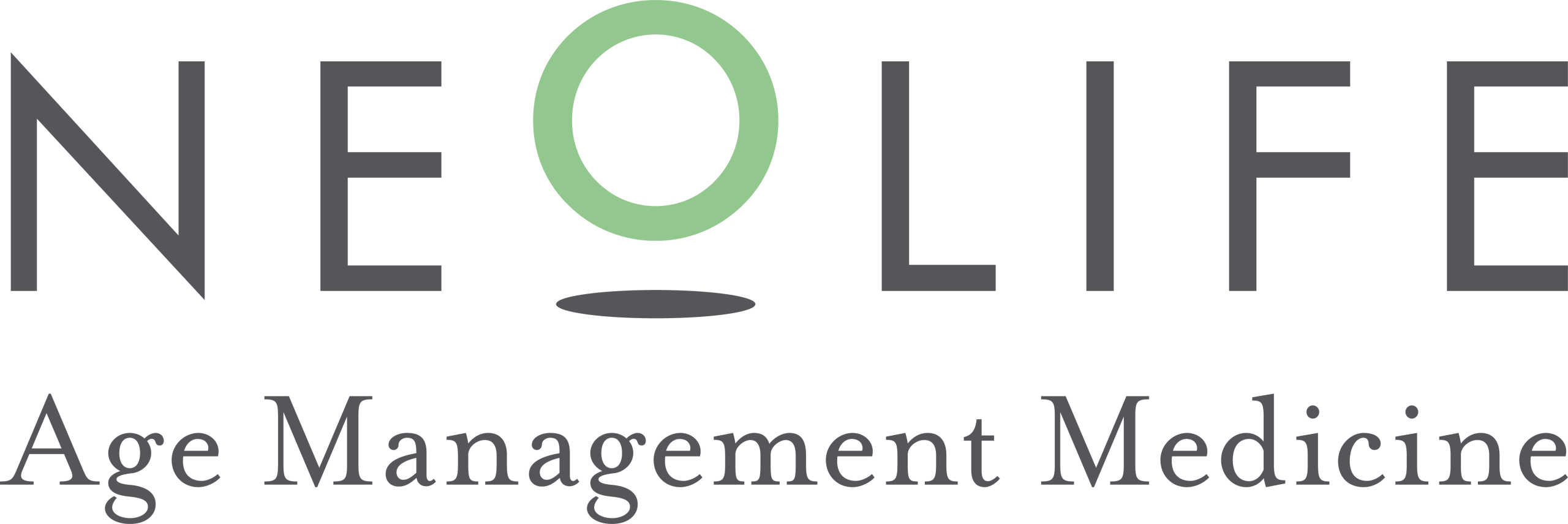The impact of testosterone on mood and mental health is also significant.
Men with low testosterone levels often experience symptoms such as fatigue, irritability, difficulty concentrating, and depression. Low testosterone is also a significant risk factor for cardiovascular diseases, including atherosclerosis.
Dr. Alfonso Galán – Neolife Medical Team
Testosterone levels typically peak between the ages of 20 and 30. From around age 30–35, levels begin to decline gradually at an approximate rate of 1% per year. This gradual decline, known as late-onset hypogonadism or “andropause,” can be accelerated by various factors.
Testosterone (T) is an essential hormone in the male body, playing a fundamental role not only in the development of secondary sexual characteristics but also in a wide range of functions affecting physical and mental health.
Although often associated with youth and vitality—and trivialized as a hormone that only enhances sexual performance or helps build muscle—maintaining healthy levels of free testosterone in older men can have deep and lasting benefits for overall health and quality of life. In the following lines, we’ll explain how testosterone influences areas such as cardiovascular health, mood, body composition, and more, as well as the factors that contribute to its age-related decline.

The Decline of Testosterone With Age
Testosterone levels typically reach their peak between the ages of 20 and 30. After 30–35, levels begin to gradually decrease at a rate of about 1% per year. This slow decline, referred to as late-onset hypogonadism or “andropause,” can be accelerated by factors such as chronic stress, obesity, physical inactivity, excessive alcohol intake, poor diet, and chronic diseases like type 2 diabetes.
Testosterone circulates in the blood in three main forms: bound to proteins such as sex hormone-binding globulin (SHBG), loosely bound to albumin—the most abundant protein in the body—and free. It is this free testosterone that is biologically active and available to the body’s tissues, and it is the primary metric we focus on in lab testing to assess the real status of our male patients. With age, not only do total testosterone levels decrease, but SHBG levels also increase, further reducing the free fraction, while the weaker bond with albumin only partially compensates for the loss of bioavailable testosterone.
Factors Affecting Testosterone Production With Age
In addition to natural aging, several factors can contribute to reduced testosterone production:
- Chronic stress: Persistent stress raises cortisol levels, a hormone that inhibits testosterone production in the testes.
- Obesity: Body fat, especially abdominal fat, converts testosterone into estrogen via the enzyme aromatase, lowering the availability of free testosterone.
- Physical inactivity: Lack of exercise reduces stimulation for testosterone synthesis. Physical activity—especially strength training—is a powerful promoter of testosterone production.
- Nutrient deficiencies: Minerals like zinc and magnesium, as well as vitamin D, are essential for testosterone synthesis. Deficiencies in these nutrients can limit hormone production.
- Poor sleep quality: Testosterone is primarily produced during deep sleep. Inadequate rest can significantly reduce its levels.
- Alcohol and tobacco consumption: Both negatively affect testicular function and testosterone production.
Here are some key strategies to optimize testosterone production: manage stress, engage in strength training, eat a nutritious diet, get adequate sleep, avoid smoking, and limit alcohol. It’s no coincidence that the absence of these good habits is linked to worse aging outcomes—testosterone is one of the mechanisms through which lifestyle profoundly impacts health.
Cardiovascular Benefits of Maintaining Optimal Testosterone Levels
The relationship between testosterone and cardiovascular health has been extensively researched. For many years, it was mistakenly believed that high testosterone levels increased cardiovascular risk. However, more recent studies have shown that low testosterone levels are, in fact, a significant risk factor for cardiovascular diseases, including atherosclerosis. Among these studies:
- A meta-analysis published in The Journal of Clinical Endocrinology & Metabolism (2011) linked low testosterone levels to a higher risk of cardiovascular mortality.
- A longitudinal study by Vikan et al. (2009) demonstrated an inverse relationship between free testosterone and the development of subclinical atherosclerosis.
- Research by Shores et al. (2006), published in Archives of Internal Medicine, showed that testosterone replacement therapy (TRT) may reduce mortality in men with testosterone deficiency.
- The “Testosterone Trials,” published in The New England Journal of Medicine (2016), involving over 700 older men with low testosterone, demonstrated significant improvements in bone density, anemia, and sexual function, without an increase in cardiovascular events.
- A 2023 study in The Journal of the American College of Cardiology involving a large cohort showed that testosterone replacement therapy in men with hypogonadism was associated with a significant reduction in major cardiovascular events, such as heart attacks and strokes, reinforcing the safety and cardiovascular benefits of this intervention in selected populations.
Testosterone supports cardiovascular health by promoting vasodilation, improving blood flow, and reducing inflammation. It also helps regulate cholesterol levels by lowering LDL (“bad” cholesterol) and increasing HDL (“good” cholesterol). When testosterone levels are low, plaque buildup in arteries (atherosclerosis) increases, which can lead to heart attacks and strokes.
Moreover, TRT in testosterone-deficient men has been shown to significantly improve endothelial function, reduce arterial stiffness, and enhance overall cardiovascular health markers. This suggests that maintaining optimal testosterone levels is not only beneficial but crucial in preventing cardiovascular diseases in older men.
Testosterone and Emotional and Sexual Well-Being
Testosterone has a major impact on mood and mental health. Men with low levels often report fatigue, irritability, trouble concentrating, and depression. This is partly because testosterone affects the production of key neurotransmitters like serotonin and dopamine, which regulate mood and feelings of well-being.
Several studies have shown that testosterone replacement therapy can significantly improve depressive symptoms in men with hypogonadism.
For example, a study published in The Aging Male (2020) assessed 200 men treated with TRT and found significant improvements in depression, anxiety, and overall quality of life. Similarly, a randomized controlled trial published in The Journal of Clinical Psychiatry (2019) found that men with hypogonadism treated with TRT showed greater improvements in mood and general well-being compared to the placebo group. Adequate testosterone levels are also associated with increased confidence, motivation, and stress resilience. This positive effect on mood not only improves quality of life but also directly influences productivity, relationships, and—as we see in clinical practice daily—our patients’ ability to make lifestyle changes as they feel more driven and determined.
Testosterone also plays a critical role in sexual function, desire, and erection. This is far from frivolous, as a satisfying sex life adds years to our life and life to our years. Testosterone enhances libido by stimulating brain areas related to arousal, supports tissue elasticity—which improves both sexual performance and the appearance of the genitals—and increases blood flow to the genitals, enhancing erection quality. It also promotes erectile tissue health, improving responsiveness to stimulation. Adequate testosterone levels can even enhance the flaccid appearance of the penis by promoting better vascularization, making it appear fuller and better shaped.
Testosterone, Muscle, and Fat
Testosterone is essential for maintaining muscle mass and regulating body fat. It stimulates protein synthesis in muscles, promoting growth and recovery. At the same time, it helps mobilize fat stores by increasing insulin sensitivity and improving lipid metabolism.
As testosterone levels decline, men tend to lose muscle and gain fat, particularly around the abdomen. These changes in body composition not only affect appearance but also increase the risk of metabolic diseases such as type 2 diabetes. Studies have shown that TRT can reverse these effects, supporting fat loss and muscle gain—even in older men.
Conclusion
Maintaining healthy free testosterone levels in older men is neither a frivolity nor a luxury—it is a necessity for ensuring a long, healthy, and fulfilling life.
From preventing cardiovascular disease to enhancing mood, body composition, and overall quality of life, testosterone plays an integral role in male well-being.
With a combination of healthy lifestyle choices, regular exercise, a balanced diet, and—when necessary—medical interventions like TRT, it is possible to maintain optimal hormone levels well into old age. Prioritizing hormonal health not only helps prevent many aging-related conditions but also enables a more active and satisfying life.
BIBLIOGRAPHY
(1) Ohlsson, C., et al. (2011). Low testosterone levels are associated with increased mortality in men: a meta-analysis. The Journal of Clinical Endocrinology & Metabolism, 96(10), 3007-3019.
(2) Vikan, T., et al. (2009). Serum levels of testosterone and carotid atherosclerosis progression in men with and without cardiovascular disease. The 5th Tromsø Study, European Journal of Preventive Cardiology.
(3) Shores, M. M., et al. (2006). Testosterone treatment and mortality in men with low testosterone levels. Archives of Internal Medicine, 166(15), 1660-1665.
(4) Snyder, P. J., et al. (2016). Effects of Testosterone Treatment in Older Men. New England Journal of Medicine, 374(7), 611-624.
(5) Alexander, G. C., et al. (2023). Association Between Testosterone Replacement Therapy and Major Adverse Cardiovascular Events: A Large Cohort Study. The Journal of the American College of Cardiology, 81(1), 1-15.
(6) Zitzmann, M., et al. (2020). Effects of testosterone therapy on symptoms of depression in hypogonadal men: A longitudinal study. The Aging Male, 23(1), 1-7.
(7) McIntyre, R. S., et al. (2019). Testosterone augmentation in major depressive disorder: A randomized, double-blind, placebo-controlled trial. The Journal of Clinical Psychiatry, 80(5), e1-e8.
